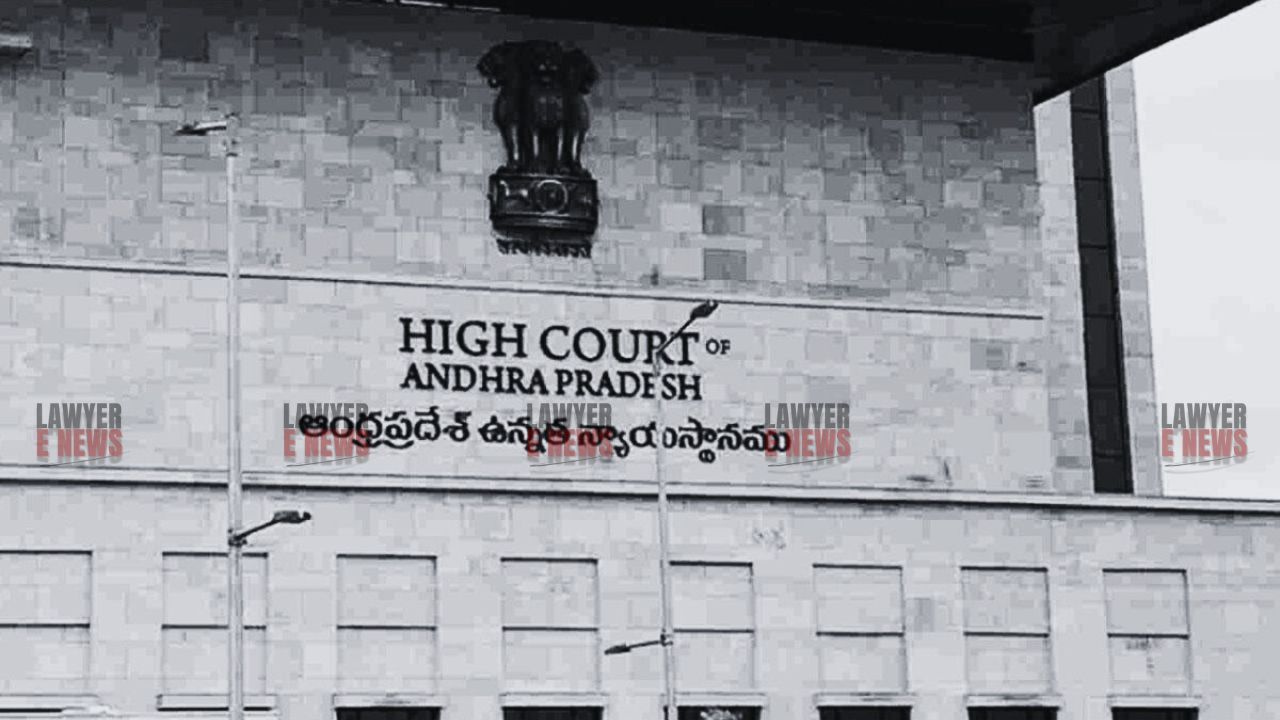-
by Admin
15 February 2026 2:36 AM



High Court of Andhra Pradesh affirms trial court’s judgment on promissory note, emphasizing evidence comparison under Section 73 of the Indian Evidence Act.
In a recent ruling, the High Court of Andhra Pradesh at Amaravati upheld the judgment of the Senior Civil Judge, Gajuwaka, regarding the validity of a promissory note. The appeal suit, filed by the appellant/defendant Gunesetti Prakash Rao, contested the trial court’s decree which favored the respondent/plaintiff Sathi Venkata Krishna Reddy. The High Court, presided over by Hon’ble Justice V. Gopala Krishna Rao, reaffirmed the trial court’s findings, emphasizing the significance of legal procedures and the credibility of evidence under the Indian Evidence Act.
The case originated from a suit (O.S. No.159 of 1999) filed by the plaintiff for the recovery of Rs.2,98,531.75, which included principal and interest due on a promissory note dated August 25, 1996. The defendant had allegedly borrowed Rs.2,00,000 for business purposes, agreeing to repay the amount on demand with an annual interest of 24%. Despite repeated demands, the defendant failed to repay the loan, prompting the plaintiff to file the suit.
The appellant argued that the promissory note was forged and denied any necessity to borrow the amount claimed. However, the trial court, after examining the evidence and testimonies, concluded that the promissory note was genuine and supported by consideration. The High Court concurred with these findings, noting that the plaintiff’s consistent and cogent evidence was unshaken during cross-examination.
The plaintiff presented three key witnesses: PW1 (the plaintiff), PW2 (an attestor), and PW3 (the scribe of the promissory note). All witnesses consistently testified about the execution and consideration of the promissory note. The defendant’s failure to provide substantial evidence to counter these claims further weakened his position. The court observed, “The evidence of PW1 to PW3 is consistent and cogent with regard to borrowing of Rs.2,00,000 by the defendant and execution of Ex.A1 pronote.”
The court applied Section 73 of the Indian Evidence Act, which allows the court to compare disputed writings with admitted ones to determine their authenticity. The trial court had compared the signatures on the promissory note with those on other documents admitted by the defendant, concluding their authenticity. The High Court upheld this approach, referencing the Supreme Court’s decision in Murari Lal vs. State of Madhya Pradesh, which supports judicial comparison of signatures when expert opinion is unavailable.
Justice V. Gopala Krishna Rao emphasized the judicial discretion in such matters, stating, “Under Section 73 of the Indian Evidence Act, the court can compare the disputed and admitted handwritings or signatures to come to its own conclusion.”
The High Court’s dismissal of the appeal reinforces the importance of credible evidence and judicial procedures in civil disputes involving promissory notes. The judgment affirms the trial court’s findings and underscores the judiciary’s role in meticulously examining evidence to uphold justice. This decision is expected to influence future cases, particularly in the realm of financial transactions and document authenticity.
Date of Decision: July 22, 2024
Gunesetti Prakash Rao vs. Sathi Venkata Krishna Reddy
